welcome to my bookbug profile
i like "reading projects", thick books, hard books. books that experiment with form and structure, books that challenge my world view and self view, books that i don't like to read, books that take me down rabbit holes of peripheral information (e.g. history, events, people, places, music, film, art, etc), and tell the story of the interconnectedness of all things.
What I'm watching:
🎥 Country Music by Ken Burns (2019)
🎥 Nightmare Alley (2021)
🎥 The Seventh Seal (1957)
🎥 Meru (2015)
What I'm listening to:
📻 Radiolab Podcast
📻 This American Life Podcast
📻 Great American Novel Podcast
currently reading
- Tom's Crossing by Mark Z. Danielewski 🐛
- The Quiet American by Graham Greene
- My Struggle: Book Two by Karl Ove Knausgård
- Why Fish Don’t Exist: A Story of Loss, Love, and the Hidden Order of Life by Lulu Miller
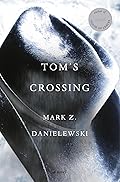
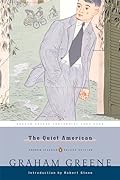
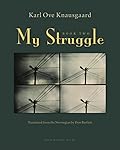
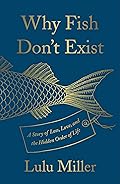
on deck
- Millard Fillmore: Biography of a President by Robert J. Rayback 📚
- Spring Snow by Yukio Mishima
bookbug book report 「december 2025」
Tom's Crossing by Mark Z. Danielewski

my book report
Beware of the stories you read or tell, because at night, beneath the surface of your wakefulness, they are alterin your world.
NOTE: At the time of writing this report, I am ~2/3 thru Tom’s Crossing.
Tom’s Crossing by Mark Z. Danielewski is a 1200 page slog, a ghost tale, modern [American] western, and Montague v. Capulet feud all rolled into one. The story also mirror’s Danielewski’s prior novel House of Leaves: the house in HoL contains a haunter labyrinth; in Crossing, the local canyon and mountain range also serve as a haunted labyrinth of sorts. Set in the early 1980s in Orvop (Provo anagram), Utah, Kalin March fulfills a promise to his late friend Tom Gatestone, stealing 2 horses from family rival Orwin Porch to save the horses from slaughter. Tom’s sister Landry tags along uninvited. In due haste, Kalin is framed for murder to cover up Orwin Porch’s fresh act of drunken filicide, and pursued by the Porch family and law enforcement into the Isatch [Rock] Canyon and Isatch [Wasatch] mountains. Oh by the way, late Tom’s ghost shows shortly after the horse theft/rescue, mounted on his own late ghost-horse Ash, to see the made promise thru. In case you are wondering, the rescued horses are Navidad and Mouse, and Landry’s horse is Jojo.
The Provo River Massacre of 1850, the murder of ~40-100 Timpanogos by Wild Bill Hickman and Mormon settlers near Fort Utah in Provo, serves as some historical backdrop for the novel. It just so happens. In Crossing, it just so happens that a Gatestone and Porch were present for that blood letting and the death of Chief Big Elk’s wife Pareyarts (Old Elk); historical legend has it Pareyarts either jumped or fell to her death attempting to scale the cliffs of Isatch [Rock] Canyon. In Crossing, Pareyarts’ ghost is after any departed Gatestone or Porch she can find, with intent to eat said departed. She strikes a deadly deal with Tom, binding the fate of his soul to the fate of Navidad and Mouse. It’s worth noting a rather large elk (Chief Big Elk?) is spotted repeatedly during the present day Gatestone/Porch pursuit.
~750 pages in, Kalin, Landry, Tom, and co. are scaling the Katanogos massif [Mount Timpanogos], pursued by a well armed Porch posse, perhaps tracing Pareyarts’ doomed path, with ample allusions to Orpheus and Eurydice. It’s not mentioned above, but Orwin Porch’s murder of his boy Russel is an act of rage upon learning that Russel has lost the family heirloom, a 19th century Colt Peacemaker, now possessed by Landry. Kalin happens to be an unnaturally gifted shooter and the Peacemaker has not yet been fired in the novel. Anton Chekhov tells us the Peacemaker must be fired.
Danielewski employs a fun literary device throughout the novel. Every few pages, Danielewski will introduce characters from some time (years, decades) in the future, fully named, located, employed, and offering retrospective analysis and commentary on a given plot point, event, or character decision, in various forms, including debate, dialectic, or even various works of art depicting a scene from the novel. These future characters often have ties back to the Orvop community, and seem to have omnipotent knowledge of the very particular details of an event or even the thoughts and feelings of a character. These passages render the tale of Tom’s Crossing to the level of a myth or legend.
One more funny note, the only word in the novel that ends in “-ing” is in the title Tom’s Crossing. Every other instance of an “-ing” word in Crossing appears “-in” without the “g”. I estimate a savings of 5-10 pages, (3-5 sheets of paper).
Crossing offers the themes of katabasis (descent) and anabasis (ascent/return) as well. We have the descent into the canyon, a haunted mine (where Pareyarts first appears), and the past that must be reckoned with, be it the Gatestone/Porch feud or a history of bloody cruelty and injustice upon which our modern world is stacked. We must reckon before we return.
locations mapped
Provo, UT
Fort Utah
Kyhv Mountain (née Squaw Peak)
Rock Canyon
Wasatch Range
Mount Timpanogos
Bridal Veil Falls
sources
🔗 Tom's Crossing
🔗 Orpheus and Eurydice
🔗 Montague–Capulet feud
🔗 Hatfield–McCoy feud
🔗 Provo River Massacre / Battle at Fort Utah, Wikipedia
🔗 The Provo River Battle, Intermountain Histories
🔗 Battle Creek Canyon & Fort Utah Massacres 1848 to 1850, The Black Hawk War Project
🔗 The Naming of a Peak
🔗 Wild Bill Hickman
🔗 The Legend of Princess Utahna
🔗 Chekhov's gun, Wikipedia
🔗 The Colt Peacemaker: Its Origins and Legacy
related reading
House of Leaves by Mark Z. Danielewski
mixtape
bookbug book report 「november 2025」
The Melancholy of Resistance by László Krasznahorkai

my book report
... one patch of waste merging with another...
... from the moment of birth every living organism carries within it the seeds of its own destruction.
In Melancholy of Resistance, an unnamed Hungarian town is in a state of corruption and decay, and the primary characters presented (Valuska, Mr. Eszter, Mrs. Eszter, and Mrs. Plauff) cope with or react to this environment with either escapism, fear, or corruption. None respond in a way to give the reader comfort or hope of a happy outcome. Valuska is the village idiot, living in a permanent state of wonder, always gazing at the cosmos, seemingly unaware of the awfulness all around him; his innocence is a form of escape, until he bumbles into the mob. V is the local postman, seemingly connected to everyone in town, yet in a way disconnected from everyone and everything given his innocence and unawareness. Mr. Eszter is V’s counterpart, also an escapist: very much aware that the world is shit, he shuts himself up in his room and refuses to participate, an escapist in the literal sense. Mr. E is arguably irresponsible, but as we see this hardly matters in the end. Mrs. Eszter is a cynic and an opportunist. She recognizes the corruption, but she wields it as a tool. She is the only one who succeeds in the story; there is no good, only power and survival. Mrs.Plauff cannot and does not escape. She lives in perpetual fear, and is killed by the violent mob.
The Whale is foreboding and obscured, massive, the centerpiece of a mysterious circus. LK lets us know that the whale is there, in fact right next to us, but the whale is never described or detailed. We can sense a threat that we can’t understand; aimless violence ensues. I think LK leaves the reader free to interpret and understand the whale. To me the whale can be the unsolved mystery(ies) of the universe (a greater circus), this thing that is seemingly infinite in size, all around us, right up against us, and to which we will ultimately succumb; we never fully understand and there is no way out. We are stuck in the circus and will be crushed by the whale. Perhaps the Whale is an Evil contained within each of us, fronted and stoked by a real persona (the Prince), a Hitler/Stalin/Orbán/Trump.
The violent mob nearly consumes the soul of the innocent Valuska; his soul is ultimately redeemed, but he still pays a price. Mr. Eszter finally realizes where he can find some good (in his loyal and caring friend, V) in an otherwise corrupt world, but this is too late as well. Mrs. Eszter’s corruption equips her for success.
LK’s message is bleak: everything, each of us, all that we love will, and the universe, will die and decompose into its most basic components. But in the telling of this story I think LK is also telling us that we must recognize and pay attention to this, watch it with eyes wide open and don’t look away. Despite all of this, we should resist. I think this resistance is necessary at a personal level, in our most basic daily life, as we go to school, work, raise a family, and build our communities; it is also necessary at a national and global level, to resist the autocrats and despots. With no offer of hope I think LK tells us we must resist anyway, and it will be with great melancholy.
MoR is the kind of book I love, challenging and bitter, with a message. The book also catered to my favorite indulgence when reading, presenting relatively obscure topics for me to explore and learn about, in this case Andreas Werckmeister and his temperaments, and the molecule adenosine triphosphate (ATP). Taking time to explore and learn about these peripheral topics enhance and add texture to the overall reading experience.
locations mapped
sources
🔗 The Melancholy of Resistance, Wikipedia
🔗 The Melancholy of Resistance, Weekend Book Review Podcast
🔗 The Melancholy of Resistance, Read&Succeed Podcast
🔗 Seiobo There Below, Bookworm Podcast
🔗 Satantango, Bookworm Podcast
🔗 Andreas Werckmeister, Wikipedia
🔗 Werckmeister temperament, Wikipedia
🔗 The Well-Tempered Clavier, Wikipedia
🔗 Why Are You Alive – Life, Energy & ATP (Kurzgesagt – In a Nutshell)
🔗 Is This the First-Ever English Language Review of László Krasznahorkai?
related reading
Moby-Dick by Herman Melville
The Plague by Albert Camus
The Road by Cormac McCarthy
mixtape
bookbug book report 「october 2025」
The Collector by John Fowles

my book report
There was always class between us.
The Collector is my 3rd Fowles read. My introduction to Fowles dates back to my first reading project (The Modern Library 100), The Magus, #92 on that list. Magus knocked my socks off. The French Lieutenant’s Woman I read sometime later. FLW didn't grab me the way Magus did, but Fowles' demonstrates mastery in his craft. Collector, Magus, and FLW each stand on their own, neither rehash the other, but as a common thread all 3 works are psychological in nature, especially the pschology of men and women and their relationships. Having read these 3, I wonder what each book would be like if written by a woman instead of a man.
On the surface, Collector is a psycholoogical horror/thriller. Structured in 2 parts, the story told first in narrative form by abductor Clegg, the 2nd in diary fragments by his victim Miranda. In Clegg's narrative, Fowles uses quotation for Miranda's dialoge, but omits quotation marks for Clegg's dialogue. As a reader this seated me in Clegg's head, and magnified the feeling of disconnect from Miranda. Miranda becomes the butterfly pinned to the board. The retelling by Miranda is next... what really jumps out is her failed attempts over and over again to find a way to connect at a human level with Clegg. The ultimate attempt at human intimacy in Clegg only humiliates him, which dooms Miranda.
Collector is a commentary on Class and Art. The impassable void separating Miranda and Clegg is parable of economic and social class division. Fowle's verdict seems to be that these divisions ultimately cannot be overcome. He is likely correct. I think this is where some level of empathy or sympathy for both Miranda and Clegg stems from in my reading. To contextualize in my own life experience, as a straight, white, male living in a first-world, developed nation I am clearly upper, upper class relative to the global population (the richest half of American families owned about 97.5% of national wealth as of the end of 2024). In terms of my gender, race, etc. I benefit from centuries of preferential treatment. Here I look down. Within my own "upper upper class" tier, I am likely upper-middle class economically. Socially, I am likely lower-middle class. I look both up and down. I cannot relate to the billionaries or be a part of their world. I cannot save those who are poor in my community (they may be wealthy in another part of the world); I can only look down with pity. I suppose I could share half of my wealth with them, but I don't have the courage to do that; I have the convenient excuse that my own family depend on all of my wealth (even though it may meet the basic needs of another family a thousand times over). Instead of looking up or down in wonder and despair, it's easier to look left and right and be content. I may volunteer my time and energy, and maybe a little bit of my wealth, to help those "below" me, and I feel good about that, but the camel will still pass through the eye of the needle before I enter the kingdom of our most benevolent God. Fowles is correct... like both Miranda and Clegg, I am damned for eternity, but maybe I'll make it through life on earth in good shape.
On Art and the Artist... Miranda is taken by GP the Artist. In GP's judgement an artist is only an artist if fully devoted to art, uncompromising, nothing else matters. It seems Miranda falls short of this bar, is always looking up to GP, seemingly accepting and unable to satisfy this standard. My view of Art and the Artist is a bit of a duality. I view GP's Art, free of any social contract, fully devoted to their art for the sake of art, owing and giving nothing to no one, as a type of art. The other type of Art (in my mind): socially contracted, art created to convey a truth and giving back. I like both, piacking and panning works from each of these types; GP is an ass, but I may love his art, or not, and neither GP nor I really matter.
Oh by the way, Clegg will kill again.
locations mapped
Forest Row, East Sussex, England
Lewes, England
London, England
sources
The Collector, Wikipedia
John Fowles' The Collector, The Readers Karamazov Podcast
Leonard Lake, Wikipedia
The Collector & the Fugitive, True Crime Garage Podcast
Woman Adopted as Infant Learns that Biological Mom Was Allegedly Murdered by Serial Killers
Police Photos - Inside Leonard Lake's Bunker
related reading
Wormholes: Essays and Occasional Writings by John Fowles
A Letter from Sheri by Cheryl Gyant
Misery by Stephen King
The Tempest by William Shakespeare
Emma by Jane Austen
Sense and Sensibility by Jane Austen
Winnie-the-Pooh by A. A. Milne
The Diary of Anne Frank by Anne Frank
Native Son by Richard Wright
American Psycho by Bret Easton Ellis
We Need to Talk About Kevin by Lionel Shriver
mixtape
bookbug book report 「september 2025」
Água Viva by Clarice Lispector
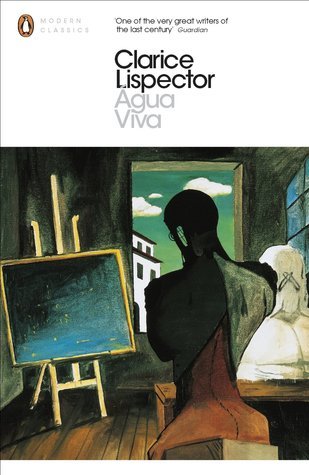
my book report
It’s this: dissonance is harmonious to me. Melody sometimes wears me out. And also the so-called “leitmotif.” I want in music and in what I write to you and in what I paint, I want geometric streaks that cross in the air and form a disharmony that I understand. Pure it.AV left me with several sensations, particularly the first half of the work: a kind of terror mixed with a love of life, a sort of slow bleeding out, wanting every sensation in every instant of time to be held; like trying to drink an entire rapids while savoring every drop; personally brings to mind my times in the ocean, alone beyond the breakers, floating supine, the crashes of the waves blotting out the sounds of the public and my deteriorated vision smearing their bodies, leaving me to myself and my thoughts and sense of the infinite. Lispector makes occasional references to real time, her meditations fading in and out of her daydreams and night(insomniac?)dreams. Lispector's improvised stream and play with matter, time, and perception bring to mind Jazz and Einstein; could AV have been written without these predecessors? More imagery, Lispector's jellyfish is both the formless and the primordial, the cat eats the placenta. The structure and style also remind me of Whitman's Leaves of Grass (containing multitudes) at times, but at the same time formless (the jellyfish), with the stream of consciousness, and existential meditation, tough to pin down and define. Another novel that I recalled while reading, The Rings of Saturn (Sebald), for its meditations on identity and time. At the end Lispector loves life. AV induces sensation, waves washing over, and while I attempt to connect it to other experiences, art, or readings, it is not a kind of anything else. My reading of AV was via epub on my phone, due to the late September connection to bookbug, and I regret not reading the print version. I also suspect that the translated version leaves a gap that cannot be recovered from the Portuguese, but that is not in the cards for me. I perhaps would not have discovered Lispector without bookbug, and I am grateful for that. Lispector seems a buried literary giant, at least in the Eurocentric world.
locations mapped
Estátua de Clarice Lispector, Rio de Janeiro, Brazil
sources
Água Viva (novel), Wikipedia
Clarice Lispector, Wikipedia
Meaning is a Breath: Images in Clarice Lispector
Interview with Clarice Lispector - São Paulo, 1977 (English subtitles)
The Complete Stories: Clarice Lispector, Library of Congress
136. Clarice Lispector - Água Viva, Backlisted Podcast
The Brazilian Kafka: Clarice Lispector (Conversations on Kafka), The University of Oxford
Clarice Lispector: The Brazilian Kafka, Fiction Beast Podcast
Água Viva by Clarice Lispector, CodeX Cantina Podcast
related reading
Leaves of Grass by Walt Whitman
The Metamorphosis by Franz Kafka
Steppenwolf by Hermann Hesse
Under the Volcano by Malcolm Lowry
The Stranger by Albert Camus
The Rings of Saturn by W.G. Sebald
mixtape




